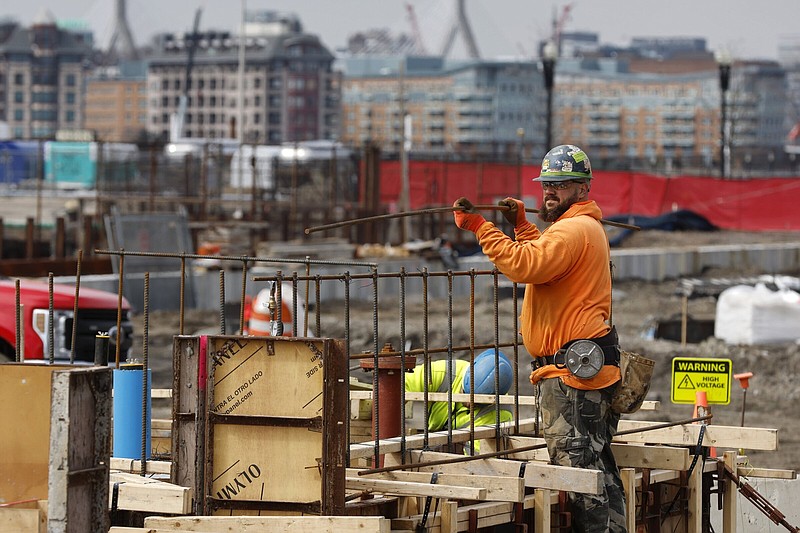Despite rising interest rates, the U.S. economy maintained its resilience from October through December, growing at a 2.6% annual pace, the Commerce Department reported in a slight downgrade from its previous estimate.
But consumer spending, which drives most of the economy's growth, was revised sharply down. The federal government had previously estimated the economy expanded last quarter at a 2.7% annual rate.
The rise in the gross domestic product, or GDP -- the economy's total output of goods and services -- for the October-December quarter was down from the 3.2% growth rate from July through September. Throughout 2022, the economy expanded 2.1%, down significantly from a robust 5.9% in 2021.
The report Thursday suggested the economy was losing momentum at the end of 2022.
Consumer spending rose at a 1% annual rate last quarter, downgraded from a 1.4% increase in the government's previous estimate. It was the weakest quarterly gain in consumer spending since covid-19 slammed the economy in the spring of 2020.
Spending on physical goods, such as appliances and furniture, which had initially surged as the U.S. economy rebounded from the pandemic-driven recession, fell for a fourth straight quarter, according to the Commerce Department data.
More than half of last quarter's growth came from businesses restocking inventories, not an indication of underlying economic strength, according to the agency.
Most economists say growth is slowing sharply in the current January-March quarter, partly because the Federal Reserve has steadily raised interest rates in its drive to curb inflation.
The resulting surge in borrowing costs has walloped the housing industry and made it more expensive for consumers and businesses to spend and invest in major purchases. As a consequence, the economy is widely expected to slide into a recession later this year.
The central bank has raised its benchmark interest rate nine times over the past year. Fed policymakers are still betting they can stick a so-called soft landing -- slowing growth just enough to tame inflation without tipping the world's biggest economy into a recession.
Yet as higher borrowing costs from the rate increases spread through the economy, analysts are generally skeptical the United States can avoid a downturn. The main point of debate is whether a recession will prove mild, with only minor damage to hiring and growth, or severe, with waves of layoffs.
The financial conditions that led to the collapse of Silicon Valley Bank on March 10 and Signature Bank two days later -- the second- and third-biggest bank failures in U.S. history -- are also expected to slow the economy.
Banks are likely to impose stricter conditions on loans, which help fuel economic growth, to conserve cash needed to meet withdrawals from jittery depositors.
"The economy ended 2022 with marginally less momentum," Oren Klachkin and Ryan Sweet of Oxford Economics wrote in a research note. "Looking ahead, the economy will face the full brunt of tighter credit conditions and Fed policy this year, and inflation is set to stay above its historical trend."
They added: "We expect a recession to hit in the second half of 2023."
In the meantime, the job market remains robust and has exerted upward pressure on wages, which feed into inflation. The pace of hiring remains healthy, and the unemployment rate is near a half-century low. Consumer confidence and spending remain relatively solid, according to separate data.
Thursday's Commerce Department report was its third and final estimate of GDP during the fourth quarter of 2022. On April 27, the agency will issue its initial estimate of growth for the current first quarter.
Forecasters surveyed by data firm FactSet have estimated GDP during the January-March quarter will decelerate to 1.4% compared with the previous year.
